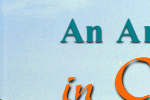 |
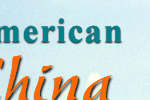 |
 |
 |
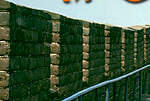 |
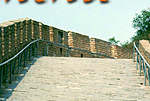 |
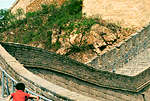 |
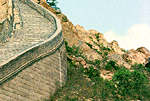 |
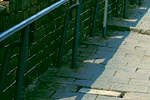 |
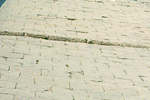 |
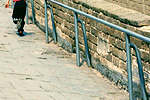 |
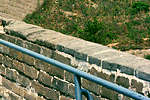 |
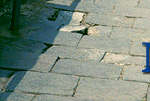 |
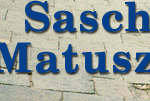 |
 |
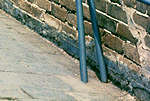 |
|
September 11, 2001 Cheating
as a Way of Life
|
|
Midway through the sweltering day one of the students, Huang Qin Qiu, turned to me with a grin and said, "Now I don't have to worry about my grade in this class." Later in the year, that same student and a few of his friends were grumbling about Professor Gan. Seems the professor didn't feel a clean backyard was worth a passing grade. What surprised me at the time wasn't the professor's actions but the genuine anger of the students. They felt entitled to a high grade for the work they put in. As a teacher myself, I found out quickly that turning in an essay copied verbatim from a text is considered scholarship in Chinese universities. My students whispered conspiratorially or stared blankly as I raged on about plagiarism and what it does to the creative mind. The next assignment saw more of the same. Advancement in the Chinese education system is based solely on tests, so cheating is inevitable. I had a class of Master's students who would peek every time I blinked -- and the sixty of them produced only half a dozen different texts between them for one essay. No amount of screeching and yelling did anything but hurt my voice. English is particularly susceptible because the foreign language education in China is so poor and the tests so difficult that most students have no choice but to cheat or fail. I was asked to produce numerous essays for graduating seniors -- when I refused they wanted me to help them pull essays off of the Web. This web essay business is big these days in China. In the old days, wannabe officials took the national exam and prayed their essay was formulaic enough to meet the Emperor's standards. Deviation from the formula -- whatever that formula may have been -- guaranteed failure. Perhaps this is why most of China's great poets began their poetic careers as exiles. The idea of the national standard exam is ingrained deep enough that it survives today. And people cheat today as much as they did back then. So it came as no surprise to me to see that China's most prominent university, Shanghai Jiaotong, embroiled itself in a cheating scandal. A list of students and their official "supporters" was posted briefly on the Web and raised an outcry amongst Chinese. The "supporters" -- all judges, party officials, military men etc. -- were for the most part related to the listed students, but the chance that the officials were just "(providing) the names of the students and their social standings," as Jiaotong spokesman Jiang Hong asserted, is very slim. In fact, anyone who was surprised that China's universities are corrupt is a fool. Teachers' salaries are dismally low and many of them never get paid, but the top officials with Party connections travel to Japan regularly, drive a fat car and have lunch with politicians all the time. Guanxi (the art of cultivating relationships) is so pervasive in China that corruption is a given. A man who speaks pidgin Japanese and does not have a Master's degree can head an office in which Ph.D. candidates with impeccable Japanese and English are mere clerks. Guess who's related to the President of Southwest Agricultural University? Government funded projects like the HOPE Project, which provides scholarships to excellent poor students, have also been tainted with nepotism and embezzlement. Less than 1% of China's population is going to college right now. There are not enough universities or seats in the universities that do exist to accommodate all those who want higher education. In order to pay for the new students, enlargements and improvements to universities largely ignored -- or in the case of Southwest Agricultural largely destroyed -- during the Cultural Revolution, universities charge higher tuition every year. So poor students don't have a chance. Students begging in the marketplace -- with a large placard hung around their necks displaying their test scores and admission letters -- are a common site in poorer provinces. Students are considered pure and righteous by many of the common people. They are the ones who will help lead a New China in the coming future. Students are sheltered and taken care of by their parents and very few of them have to work or experience life outside of a dorm. For my students, corruption is a way of life. Students with poor scores and successful parents get scholarships while excellent, outspoken students get charged with cheating (ludicrous!) and are threatened with expulsion. People learn very quickly that in order to get ahead in China qualifications aren't as important as who you know and how well you know them. So when my students turn in plagiarized essays and cheat like little children I am angry that they are becoming like their elders, while I egg them on at the same time, hoping they'll slip through the cracks into the rare good job. |
Text-only printable version of this article Sascha Matuszak
is a teacher living and working in China. His articles have appeared
in the South China Morning Post, the Minnesota Daily,
and elsewhere. His exclusive Antiwar.com column appears Tuesdays. Archived columns Cheating
as a Way of Life China's
Internet Generation Free
Markets or Supermarkets Sailing
Towards World Significance China's
Youth Revolution |
Please Support Antiwar.comSend contributions to Antiwar.com or
Contribute Via our Secure Server |
|
